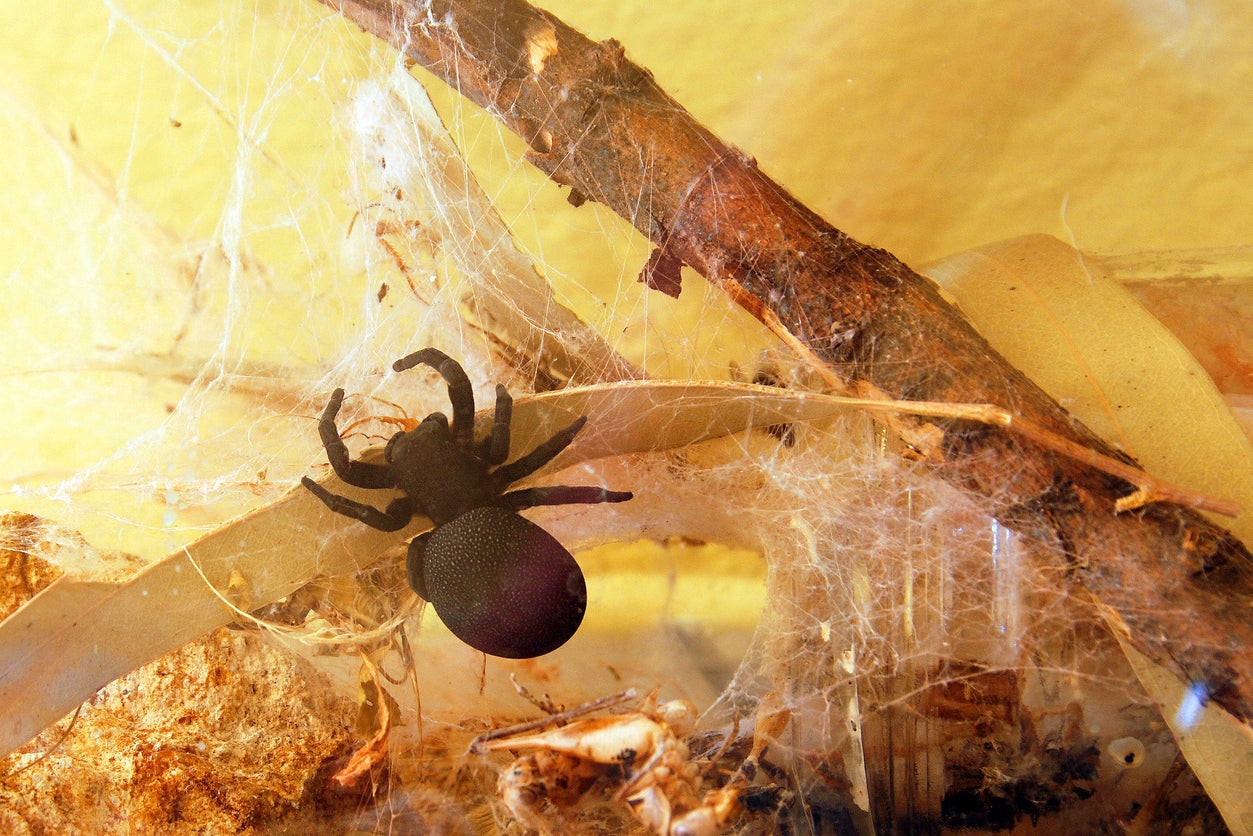Drug made with deadly spider venom could help repair heart attack damage, study finds

Venom from one of the world's deadliest spiders could be used to help heart attack victims recover and extend the life of hearts used for transplants, according to a new study.
A potential drug developed from a molecule found in the venom of the Fraser Island (K’gari) funnel web spider can prevent damage caused by a heart attack, researchers say.
Funnel web spiders, common in eastern Australia, are predators that build webs around their burrows and wait for their prey to get stuck. Their poisonous venom can kill a human.
The drug study was conducted by a team led by Professor Peter Macdonald from the Victor Chang Cardiac Research Institute in Sydney, New South Wales and Dr Nathan Palpant and Professor Glenn King from The University of Queensland (UQ) in Brisbane, Queensland.
"This will not only help the hundreds of thousands of people who have a heart attack every year around the world, it could also increase the number and quality of donor hearts, which will give hope to those waiting on the transplant list,” Prof MacDonald said.
Dr Palpant, from UQ’s Institute for Molecular Bioscience (IMB), said the drug candidate worked by stopping a ‘death signal’ sent from the heart in the wake of an attack.
“After a heart attack, blood flow to the heart is reduced, resulting in a lack of oxygen to heart muscle,” Dr Palpant said.
“The lack of oxygen causes the cell environment to become acidic, which combine to send a message for heart cells to die.”
“Despite decades of research, no one has been able to develop a drug that stops this death signal in heart cells, which is one of the reasons why heart disease continues to be the leading cause of death in the world.”
Dr Palpant tested a protein called Hi1a, using beating human heart cells exposed to heart attack stresses to see if the drug improved their survival.
“The Hi1a protein from spider venom blocks acid-sensing channels in the heart, so the death message is blocked, cell death is reduced, and we see improved heart cell survival.”
Prof MacDonald, who is also a senior cardiologist at St Vincent’s Hospital in Sydney, added: “The survival of heart cells is vital in heart transplants — treating hearts with Hi1a and reducing cell death will increase how far the heart can be transported and improve the likelihood of a successful transplant.
“Usually, if the donor heart has stopped beating for more than 30 minutes before retrieval, the heart can’t be used - even if we can buy an extra 10 minutes, that could make the difference between someone having a heart and someone missing out. For people who are literally on death’s door, this could be life-changing.”
The study builds on previous research carried out by Prof King, who identified a small protein in the venom of the Fraser Island funnel-web spider that was shown to markedly improve recovery from stroke.
“We discovered this small protein, Hi1a, amazingly reduces damage to the brain even when it is given up to eight hours after stroke onset,” Prof King said.
“It made sense to also test Hi1a on heart cells, because like the brain, the heart is one of the most sensitive organs in the body to the loss of blood flow and lack of oxygen.
“For heart attack victims, our vision for the future is that Hi1a could be administered by first responders in the ambulance, which would really change the health outcomes of heart disease.”
The protein has been tested in human heart cells and the team is aiming for human clinical trials, for both stroke and heart disease, to begin within two to three years, the researchers added.
This research was published in Circulation and funded by The University of Queensland, the Australian National Health and Medical Research Council and the National Heart Foundation of Australia.
Subscribe to Independent Premium to bookmark this article
Want to bookmark your favourite articles and stories to read or reference later? Start your Independent Premium subscription today.

Join our commenting forum
Join thought-provoking conversations, follow other Independent readers and see their replies